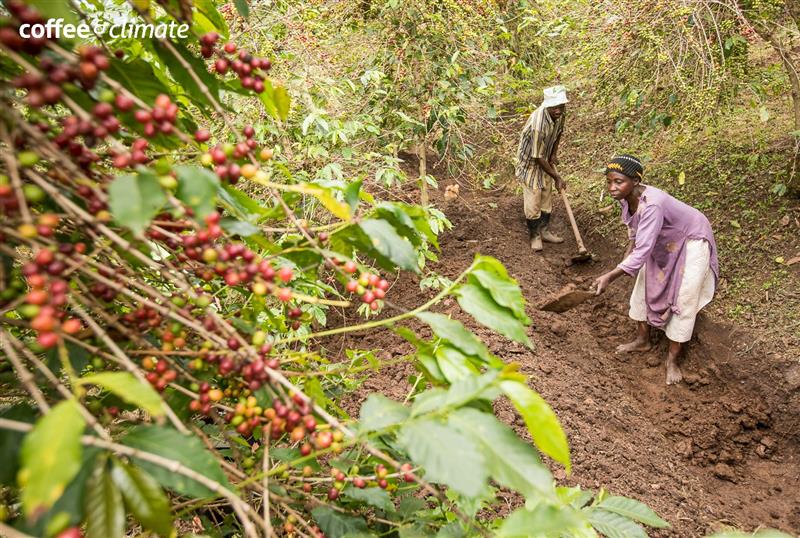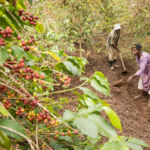Climate Risk Profile – Uganda
The effective design of adaptation strategies requires an understanding of climatic changes and the regional context. This brief therefore discusses climate impacts for Uganda and potential pathways to mainstream climate smart interventions in the country.

Concept
Mainstreaming climate smart coffee requires critical stocktaking of the sector fundamentals, already evident and projected climatic developments relevant to coffee production and promising practices for the future, and of institutional and financial enablers for climate smart coffee adoption.
The brief first describes the national context of coffee production, recent developments and potentially climate relevant aspects. To provide an efficient guideline for adaptation practices, we triangulated observed and perceived climatic change with a gradient of climate change impacts for coffee production. The gradient is a coffee specific evaluation of projected climatic changes. The effectiveness of climate smart coffee practices was evaluated in the Ugandan context.
The information in the brief enables interventions to effectively support adaption in the region at scale.
Drawbacks
- High costs, labor and knowledge.
- Not for all coffee countries/region reliable data is available.
- Anticipatory scaling of climate adaptation is limited by uncertain climate data.
Costs
- Costs are about 70.000 USD per country/ regional profile.
Recommended Activities
- Need to engage different scientist and a fair mediation between different scientific approaches.
- Need to include local experts to ensure relevance.
Further Comments
- Use of the results for landscape and farm – level Climate Smart Agriculture (CSA) activities.
Author: CIAT

Leave a comment
0 comments